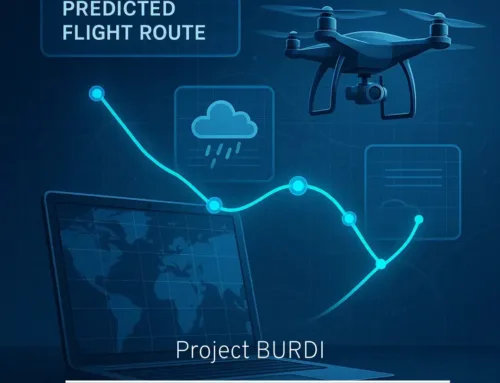UnLuBW Project: Enhancing Urban Air Quality Assessment
The UnLuBW project (Unbemannte Luftschadstoffmessung in Baden-Württemberg) aimed to develop and evaluate urban air quality measures by complementing official stationary air quality measurements with a flexible drone-based monitoring system.
In collaboration with German municipalities, representative locations were selected to vertically capture pollutants such as particulate matter and NO2 using sensors mounted on unmanned aerial systems (UAS). The UnLuBW project not only provided a spatially differentiated picture of pollution levels and dispersion from various sources but also enabled the systematic assessment of air quality measures using new mobility concepts.
The integration of Unisphere's 7-day forecast software NOVA Operations Platform further enhanced the project's capabilities by analyzing meteorological factors and optimizing measurement campaigns. By considering meteorological variables such as humidity, temperature stratification, and inversion weather conditions, the software helped identify the influence of these factors on spatial variability and measurement accuracy.
Additionally, Unisphere integrated parameters influencing pollutant measurements into its software. This enabled researchers to conduct measurements not only under ideal conditions but also to repeat them systematically to consistently assess the impact of air quality measures. Furthermore, Unisphere collaborated with municipalities to obtain flight permissions, ensuring compliance and seamless execution of the project.
Through the use of UAS technology and advanced meteorological analysis, the project aimed to provide municipalities with valuable insights into pollutant distribution and the effectiveness of air quality measures, enabling them to make informed decisions about urban transportation policies. Through the public availability of measurements and results, and by conducting informative public events, UnLuBW promoted knowledge sharing and empowered communities to actively participate in the journey towards cleaner and healthier urban environments.
The project was funded by the German Federal Ministry of Digital and Transport. The project was done in collaboration with ISME, the Geoinformatics Working Group of the University of Tübingen, the Environmental Physics Group of the University of Tübingen, and Unisphere. To find out more about the project click here.





